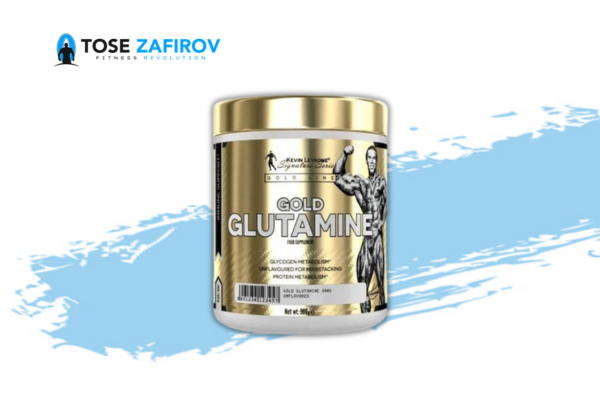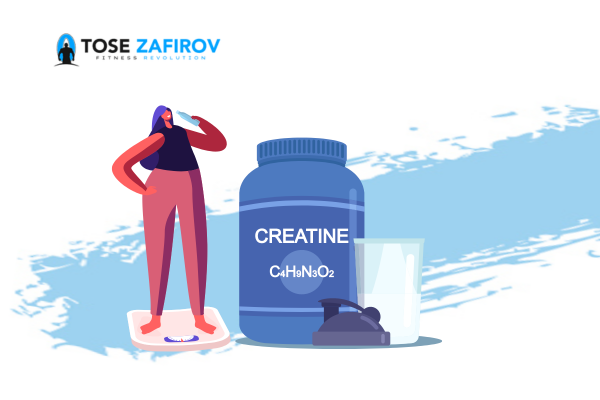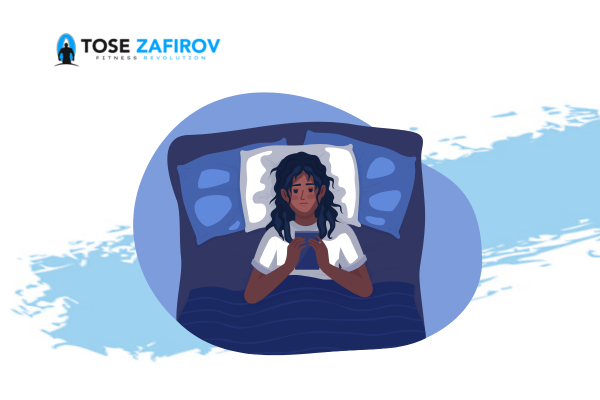Glutamine is an amino acid produced by the body and found in food. It supports your body’s immune and digestive systems.
Glutamine is an important amino acid with many functions in the body.
It is a building block of protein and critical part of the immune system.
What’s more, glutamine has a special role in intestinal health.
Your body naturally produces this amino acid, and it is also found in many foods. Yet, you may be unsure if you need extra glutamine from supplements for optimal health.
This article explains why glutamine is important and discusses the benefits and safety of glutamine supplements.
Key Takeaways:
- Glutamine, an essential amino acid, serves as a building block for proteins and plays a vital role in immune and intestinal health.
- Found naturally in various foods, glutamine is abundant in animal products, though some plant-based sources also contain it.
- Glutamine supports immune cells, and its deficiency during illness or injury may compromise immune function.
- The amino acid is crucial for intestinal health, serving as an energy source, maintaining the intestinal barrier, and supporting cell growth.
What Is Glutamine?
Glutamine is an amino acid. Amino acids are molecules that play many roles in the body.
Their main purpose is to serve as building blocks for proteins.
Proteins are crucial to the organs. They also serve other functions, such as transporting substances in the blood and fighting off harmful viruses and bacteria .
Like many other amino acids, it exists in two different forms: L-glutamine and D-glutamine.
They are almost identical but have a slightly different molecular arrangement .
The form found in foods and supplements is L-glutamine. Some supplements list it as L-glutamine, but others simply use the broader term glutamine.
While L-glutamine is used to make proteins and perform other functions, D-glutamine appears to be relatively unimportant in living organisms .
L-glutamine can be produced naturally in your body. In fact, it is the most abundant amino acid in the blood and other body fluids .
However, there are times when the glutamine needs of your body are greater than its ability to produce it.
Therefore, it’s considered a conditionally essential amino acid, meaning that it must be obtained from the diet under certain conditions, such as injury or illness .
Also, glutamine is an important molecule for the immune system and intestinal health .
Note
amino acid. L-glutamine is the form found in foods,
supplements and the human body. It is part of the proteins in your
body and involved in immune function and intestinal health.
It Is Found in Many Foods
Glutamine is naturally found in a variety of foods. It has been estimated that a typical diet contains 3 to 6 grams per day, but this can vary based on your specific diet .
The largest amounts are found in animal products due to their high protein contents.
However, some plant-based foods have a greater percentage of it in their protein.
One study used advanced lab techniques to determine how much L-glutamine is found in various foods.
The following are the percentages of protein made up of L-glutamine in each food:
- Eggs: 4.4% (0.6 g per 100 g of eggs)
- Beef: 4.8% (1.2 g per 100 g of beef)
- Skim milk: 8.1% (0.3 g per 100 g of milk)
- Tofu: 9.1% (0.6 g per 100 g of tofu)
- White rice: 11.1% (0.3 g per 100 g of rice)
- Corn: 16.2% (0.4 g per 100 g of corn)
Although some plant sources, such as white rice and corn, have a large percent of protein made up of glutamine, they have fairly low protein contents overall .
Thus, meat and other animal products are the simplest ways to get high amounts of it.
Unfortunately, the exact glutamine content of many specific foods has not been studied.
However, because glutamine is a necessary part of proteins, virtually any food containing protein will contain some glutamine.
Focusing on getting enough protein in your overall diet is an easy way to potentially increase the amount of glutamine you are consuming.
Pro Tip
Almost any food containing protein will contain some glutamine, but amounts vary. Animal foods are good sources due to their protein contents. Getting enough protein in your diet can ensure you are getting enough.
It Is Important for the Immune System
One of the most important functions of glutamine is its role in the immune system.
It is a critical fuel source for immune cells, including white blood cells and certain intestinal cells .
However, its blood levels can decrease due to major injuries, burns or surgeries .
If the body’s need for glutamine is greater than its ability to produce it, your body may break down protein stores, such as muscle, to release more of this amino acid.
Additionally, the function of the immune system can be compromised when insufficient amounts of glutamine are available .
For these reasons, high-protein diets, high-glutamine diets or glutamine supplements are often prescribed after major injuries like burns.
Studies have also reported that glutamine supplements may improve health, decrease infections and lead to shorter hospital stays after surgery .
What’s more, they have been shown to improve survival and reduce medical costs in critically ill patients.
Other studies have shown that glutamine supplements may also improve immune function in animals infected with bacteria or viruses .
However, there is not strong support for benefits in healthy adults, and the needs of these individuals may be met through diet and the body’s natural production .
Pro Tip
Glutamine plays an important role in immune function. However, during illness or injury, the body may not be able to produce enough of it. Glutamine supplements may help improve immune function and preserve protein stores in the body.
It Plays a Role in Intestinal Health
Glutamine’s immune system benefits are related to its role in intestinal health.
In the human body, the intestines are considered the largest portion of the immune system.
This is because of the many intestinal cells with immune functions, as well as the trillions of bacteria that live in your intestines and impact your immune health .
Glutamine is an important energy source for intestinal and immune cells .
It also helps maintain the barrier between the inside of your intestines and the rest of your body, thereby protecting against a leaky gut .
This prevents harmful bacteria or toxins from moving from your intestines into the rest of your body.
Additionally, it is important for the normal growth and maintenance of the cells in the intestine .
Due to the major role of the intestines in the immune system, glutamine may benefit your overall immune health by supporting the intestinal cells .
Note
Your intestines are a major part of your immune system. Glutamine is an energy source for intestinal and immune cells. It also helps maintain the barrier between the intestines and the rest of your body and aids with proper growth of intestinal cells.
Effects on Muscle Gain and Exercise Performance
Due to its role as a building block of protein, some researchers have tested whether taking glutamine as a supplement improves muscle gain or exercise performance.
In one study, 31 people took either glutamine or a placebo during six weeks of weight training .
By the end of the study, both groups showed improved muscle mass and strength. However, there were no differences between the two groups.
Additional studies have also shown that it has no effects on muscle mass or performance .
However, some research has reported that glutamine supplements may decrease muscle soreness and improve recovery after intense exercise .
In fact, one study found that glutamine or glutamine plus carbohydrates can help reduce a blood marker of fatigue during two hours of running .
It has also been used to try to boost the immune function of athletes, but results vary .
Other research has found that it did not improve the recovery of carbohydrate stores (glycogen) in muscle when added to carbohydrates and certain amino acids.
In the end, there is no evidence that these supplements provide benefits for muscle gain or strength. There is some limited support for other effects, but more research is needed.
It’s also important to note that many athletes have high protein intakes in their regular diets, meaning they may be consuming large amounts of glutamine even without supplements.
Note
There is little support for the use of glutamine supplements for muscle gain or strength performance. However, they may reduce fatigue or decrease muscle soreness during and after exercise.
Dosage, Safety and Side Effects
Since glutamine is an amino acid that is naturally produced in the body and found in many foods, there is no concern that it’s harmful in normal quantities.
It has been estimated that a typical diet may contain 3 to 6 grams per day, although this amount could vary based on the types and quantities of foods consumed.
Studies on glutamine supplements have used a wide variety of doses, ranging from around 5 grams per day up to high doses of approximately 45 grams per day for six weeks .
Although no negative side effects were reported with this high dosage, blood safety markers were not specifically examined.
Other studies have reported minimal safety concerns regarding short-term supplementation of up to 14 grams per day .
Overall, it is believed that the short-term use of supplements is likely safe. However, some scientists have raised concerns about their sustained use .
Adding glutamine to a regular diet may cause a variety of changes in the way the body absorbs and processes amino acids. Yet, the long-term effects of these changes are unknown .
Therefore, more information is needed concerning long-term supplementation, particularly when high doses are used.
It is possible that glutamine supplements may not have the same effects if you eat an animal-based, high-protein diet, compared to a plant-based, lower-protein diet.
If you follow a plant-based diet with low glutamine content, you may be able to consume supplements while still receiving a normal daily amount of it overall.
If you decide to take a glutamine supplement, it is probably best to start with a conservative dose of around 5 grams per day.
Note
Intake of the glutamine found in foods, as well as the short-term use of
supplements, is
safe. However, glutamine supplements can affect how your body processes amino acids.
More studies on their long-term use are needed.
The bottom line
Glutamine, a key amino acid, plays essential roles in protein synthesis, immune function, and intestinal health. While it may offer benefits for exercise recovery, its impact on muscle gain is inconclusive. Incorporate glutamine cautiously into your diet, considering natural food sources and short-term supplement use for optimal health.





